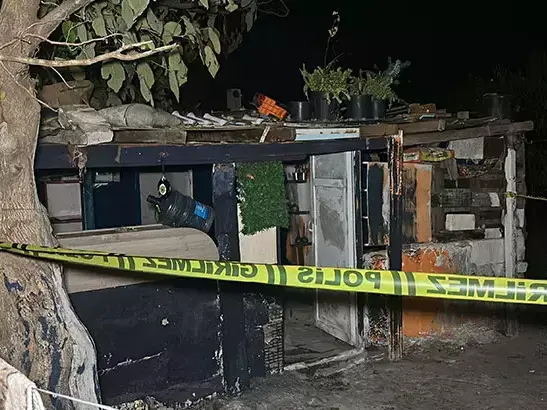In previous days, a fire broke out in Selçuk district of İzmir, taking the lives of 5 siblings. The tragic incident occurred when the mother, who had left the house to sell the scrap she had collected. All of the children (of whom the eldest was 5 years old) died from smoke inhalation.
According to neighbors, the family had been experiencing financial difficulties, and social services had visited their home 18 times this year. However, officials claimed the family declined the opportunity to place the kids under state protection.
Turkey’s growing social and economic inequalities reflect an erosion of social justice, disproportionately impacting those who have become poorer in recent years. Social justice implies that all citizens should have equal access to resources, services, and protections. Yet, the unfortunate reality in Turkey is that safety and protection are often luxuries, not guarantees, for the poor population. The tragic loss of these children in İzmir could potentially have been prevented if proper support structures were implemented and enforced for the family in need.
The struggle for survival among economically disadvantaged families demonstrates an uneven distribution of resources. In other words, it can be said that, there is a growing wealth gap in Turkey. The current situation in the country reveals that there is a high level of income inequality, which is closer to that seen in the most unequal countries of Latin America and Sub-Saharan Africa.
The fire in İzmir is a sign of the struggles facing Turkey’s poor, for whom the costs of safe housing, adequate nutrition, and healthcare are increasingly out of reach. Even as the government seems to promote economic recovery plans, these efforts often fall short of reaching those who need help the most. Instead of providing support, the current system seems to neglect the poor, making it harder for families to escape poverty.
Another shocking case has recently come to light, further exposing systemic flaws. Forty-seven individuals have gone on trial in connection with an alleged “Newborn Baby Gang” scandal. This criminal network reportedly involved doctors, nurses, and ambulance drivers who caused the death of newborn babies for profit. Prosecutors claim that newborns were illicitly transferred between hospitals, with at least 10 babies tragically losing their lives due to the bad conditions and negligence of those who are responsible.
The Health Ministry has shut down nine private hospitals as a result of the investigation, with a total 19 health institutions deemed to bear responsibility. Further investigations revealed that the gang not only exploited infants for monetary gain but also manipulated hospital records to cover their tracks. Such widespread corruption shows the failure of institutional checks and balances and the decay in health system and justice system. This also shows the dominance of unethical practices that remain constantly unchecked and unpunished. For families struggling in poverty, this decay adds another layer of tragedy.
This scandal, like the İzmir fire, highlights the urgent need for systemic reforms to protect citizens from preventable harm. These two incidents—the İzmir fire and the “Newborn Baby Gang” case—highlight a broader pattern of neglect and corruption that disproportionately impacts poor families. These incidents both reflect an urgent demand for reforms to address interconnected crises in social welfare, housing, and healthcare, where oversight and accountability must be prioritized.
The inability of the government to address these issues is another key factor contributing to the deepening of the crises. While political leaders often speak of reforms and development, there remains a major disconnect between government priorities and the needs of the population. Rather than implementing effective policies that support social justice and reduce poverty, elites often focus on projects that bolster their political image and increase their material/financial gains.
The fire tragedy in İzmir and the “Newborn Baby Gang” scandal cannot be seen as isolated incidents. They are painful reminders of a larger systemic failure that leaves families without social safety measures. Addressing these systemic issues requires more than words. It calls for a national commitment to safety, equity, and the welfare of every citizen. To ensure a more equitable future, Turkey needs a new economic and political paradigm with functioning audit mechanisms that serves the well-being of all its citizens, not just the privileged elite.

